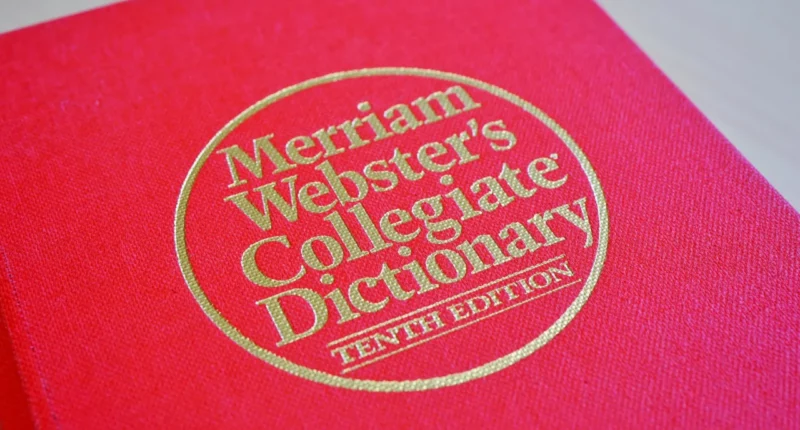If your journey through this year feels like traversing a landscape of uncertainties and perplexities, you’re not alone.
Merriam-Webster has crowned “authentic” as the word encapsulating 2023. Unlike its predecessors in the dictionary’s annual selection — “pandemic” in 2020, followed by “vaccine” in 2021, and the slightly more elusive yet widely used “gaslighting” in 2022 — “authentic” brings along a multitude of contradictions. There’s no straightforwardness in this choice. It’s not because authenticity is overflowing; rather, it’s due to its intricate complexities.
According to Peter Sokolowski, Merriam-Webster’s editor-at-large, 2023 marks “a crisis of authenticity,” evident from the extensive lookups of the word throughout the year. This crisis hints at numerous pressing concerns: the rise of artificial intelligence, the proliferation of misinformation, or even the details within Rep. George Santos’ resume. But I propose that the roots of our authenticity dilemma delve deeper and surface more superficially than these immediate concerns suggest. On an individual level, grappling with authenticity has been an ongoing struggle.
Defining personal authenticity should be straightforward, yet it’s surprisingly elusive. Other popular search terms in 2023, such as “deadname” and “deepfake,” share concerns about identity but with more definitive negative connotations. What sets authenticity apart is its aspirational nature — defined by Merriam-Webster as being “genuine” or “true to one’s personality, spirit, or character” — now encumbered by associations. While it’s challenging to precisely define authenticity, we’ve become hypersensitive to indications of its fabrication.
Consider Jennifer Lawrence. At the start of the 2010s, she embodied an aura of faultlessness. The success of The Hunger Games franchise wasn’t solely tied to box office triumphs; it was largely linked to her apparent lack of pretense, her authenticity. Sure, she clinched an Oscar for Silver Linings Playbook in 2013, but she also stumbled in her Dior gown while ascending the stage to receive her award, using her speech to wish someone a happy birthday. She refused Hollywood’s pressures to conform to certain body standards for roles, swore freely, partied with co-stars, and openly shared stories about her quirky sense of humor. Media outlets portrayed her as the down-to-earth representation of the “cool girl” persona initially popularized by Gillian Flynn’s “Gone Girl” in 2012 — carefree, cheerful, and an emblem of effortless attractiveness. Until perceptions changed.
When Lawrence stumbled again at the 2014 Oscars, the tide turned. A single stumble was endearing, but multiple stumbles appeared contrived. What once seemed authentic now appeared manipulative and draining to some. Overnight, the “cool girl” image she epitomized underwent a transformation. Suddenly, as per social media, Lawrence was labeled a “pick me girl.”
“Pick me girls” exhibit traits akin to cool girls but, as per TikTok culture, their “not like other girls” vibe primarily aims to allure men. As noted by JL Hodgson earlier this year, once Lawrence was rebranded as a pick-me girl, her formerly attractive qualities lost their charm. This backlash encapsulates a fundamental complexity of personal authenticity. Our perception of our genuine attributes and how others interpret our projected image are both subjective. Even if we confidently define our “true” selves, there’s ample room for misinterpretation.
Online, our small social media realms mirror the behaviors of celebrities’ massive platforms, blending into real-life dynamics. Are the meticulously polished Kardashians inauthentic, or do their curated photoshoots merely extend their real-life aesthetics? Are filtered selfies fake, or do they represent authenticity more than posed “woke up like this” snapshots? Was YouTuber Emma Chamberlain as authentic hosting the Met Gala as she was in her vulnerable, unscripted videos? Should we disclose our mental health struggles on social media, knowing we might not share the same with our boss in person?
Herein lies the quandary. Assuming we understand our authentic traits, we can’t guarantee effective communication of these traits to the world or ascertain if it’s even wise to do so. What we comfortably share online might not align with what we’re willing to articulate in “real life,” and in either scenario, our reception remains beyond our control.
Authenticity, in a peculiar way, is tarnished by its coveted status. To circle back to Merriam-Webster’s tertiary definition of authenticity as “conforming to an original to replicate essential features,” it aligns somewhat with the notion of “fake it ’til you make it.” Every aspect of that description invites potential missteps. What if conformity isn’t feasible? What if one’s idea of “essential” features clashes with others’ perceptions?
I’d love to resolve these questions. However, after wrestling with authenticity for a significant part of the day, the only consistent observation I’ve made is that no single arbitrator can dictate it. You might hold a different viewpoint, and that’s fair. But my allegiance lies in being true to myself.





